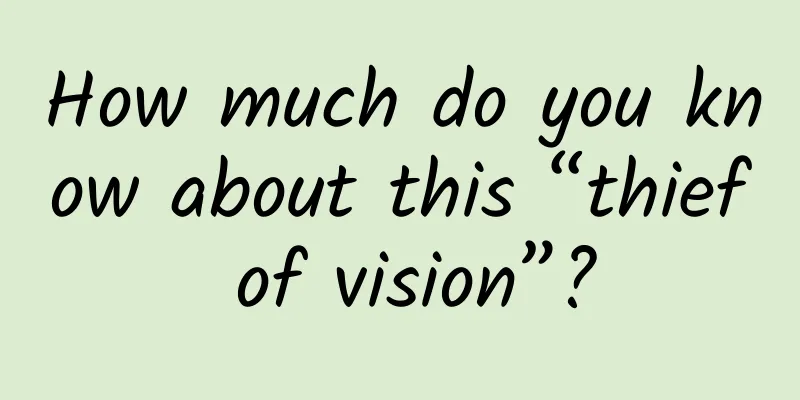Be careful! These habits may lead to bone loss! Learn these knowledge to keep your "hard" bones

|
When it comes to bone loss, many people think it is an "old age disease", but with the changes in modern people's lifestyles, more and more young people are unfortunately "infected", and 23-year-old Xiao Chen is one of them. "Is this a mistake? I'm only 23 years old, how could my bone mass be reduced?" Recently, Xiao Chen from Changsha went to the hospital for a health check-up and received the report with full of questions. The doctor learned that Xiao Chen likes to stay at home, drink milk tea, and stay up late. He reminded him that young people will also suffer from bone loss. There are no obvious symptoms in the early stages, but over time , bone pain, fatigue, spinal deformity, and even easy fractures may occur. He must develop good living habits in the future! (Xiao Chen's test report) What does bone loss mean? Why does bone loss occur at a young age? How can we prevent it? Li Qi, director and chief physician of the Health Management Center of Hunan Occupational Disease Prevention and Treatment Institute (affiliated to the Occupational Disease Prevention and Treatment Institute of the University of South China), explains to everyone. 1. What is osteopenia?Osteopenia refers to a condition in which the content of minerals (such as calcium and phosphorus) in bones is reduced and bone density is lower than the normal range. This condition is usually accompanied by a decrease in bone strength, which may increase the risk of fractures. 2. Does decreased bone mass mean osteoporosis?In the bone density examination report, the T value is the key indicator to determine whether the bone density is normal. T value ≥ -1: normal bone density. -2.5﹤T value﹤-1: Bone mass decreases and bone loss begins. T value ≤ -2.5: osteoporosis. It can be seen that bone loss does not mean osteoporosis, but it is a dangerous signal . If not intervened in time, bone loss is likely to further develop into osteoporosis, and bone loss will also increase with age. 3. Why does bone loss target young people?1. Malnutrition Many young people often neglect healthy eating due to busy work and fast-paced life, resulting in insufficient nutrition intake. Some people have long-term picky eating habits, such as excessive intake of carbonated drinks, coffee, strong tea, etc. Some ingredients in these foods will affect the absorption and utilization of calcium, increasing the risk of osteoporosis. 2. Lack of exercise Moderate exercise can stimulate bone tissue and enhance bone strength and toughness. However, many young people sit for a long time and lack exercise, so their bones do not get enough external stimulation, which leads to a gradual decrease in bone mass. 3. Disease and drugs Certain disorders (eg, hyperthyroidism, adrenal tumors) and drugs (eg, corticosteroids) can affect bone metabolism and increase the risk of osteoporosis. 4. Bad living habits Smoking can damage bone cells and lead to a decrease in bone mass; while excessive drinking can affect the normal metabolism of bones and further aggravate bone loss. 4. How to protect bone health1. Reasonable diet: eating out "hard bones" Eat more foods rich in calcium and vitamin D, such as milk, soy products, dried shrimps, sesame paste, green leafy vegetables, etc. At the same time, avoid high-sugar, high-salt, high-fat foods, and drink less strong tea, coffee and carbonated drinks, which will affect calcium absorption. 2. Exercise moderately: build strong bones Exercise can not only enhance muscle strength, but also effectively improve bone density. Choose the exercise that suits you, such as aerobic exercise such as walking, jogging, swimming, cycling, or anaerobic exercise such as weight training. 3. Quit smoking and limit alcohol consumption: Stay away from "bone killers" Smoking and excessive drinking are the "big enemies" of bone health. Quitting smoking and limiting alcohol consumption can not only protect bones, but also improve overall health. 4. Regular physical examinations: early detection and early intervention Young people should also have regular bone density checks . If they find that their bone density is reduced or there are other risk factors, they should consult a doctor and take intervention measures in time. 5. Appropriate amount of sunshine: Sunlight is a "free calcium supplement" Sunlight helps synthesize vitamin D and promotes calcium absorption. But you should pay attention to sun protection, avoid long-term exposure at noon, and choose to do outdoor activities in the morning or evening. 6. Pay attention to mental health: a good mood is also a "bone medicine" Long-term mental stress and anxiety can have a negative impact on bone health. Learn to release stress and maintain a good attitude. You can relax your body and mind through exercise, meditation, reading, etc.
(Edited by ZS) |
<<: International Rare Disease Day | Only when we see the rarity can we see the love
>>: Why is influenza so difficult to treat?
Recommend
Menstrual bleeding
Women have heavy menstrual bleeding and the bleed...
How can shoulder dystocia be prevented? How to take care of
Some people may not know what shoulder dystocia i...
What is the cause of 2nd degree cervical erosion?
In today's society, the incidence of gynecolo...
Coughing after drinking water? Beware of this "invisible killer" of the elderly!
Author: Sun Xiaohong, Chief Physician, Peking Uni...
How to treat dark and light menstrual blood
Women have many common problems during menstruati...
What causes uterine prolapse?
Uterine prolapse is a common disease among women....
8 tips to help you maintain a good complexion for women
A good complexion can attract everyone. Only when...
Will I have my period while taking progesterone?
The problem of endocrine imbalance caused by sex ...
I'm pregnant and it hurts, what's going on?
If a female friend experiences pain in the lower ...
Stomach pain and lower body bleeding
I believe that women are no strangers to the feel...
Bleeding again 10 days after abortion
Abortion is a common phenomenon in our daily life...
What to do if there is residue on the seventh day after medical abortion
The main harm of medical abortion is that due to ...
Early menstruation with light color
If women want to understand their own health cond...
What to do if you have diarrhea at 50 days of pregnancy
Many women experience diarrhea when they are 50 d...









